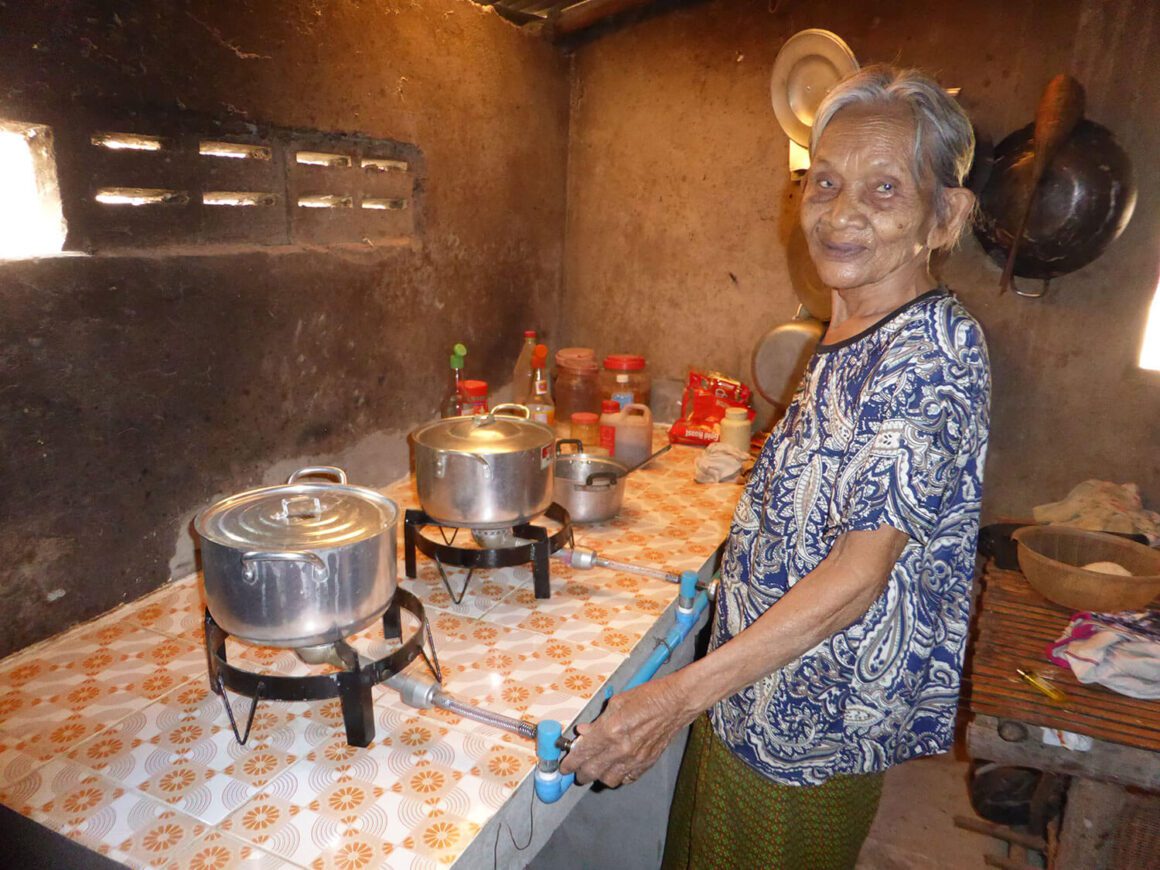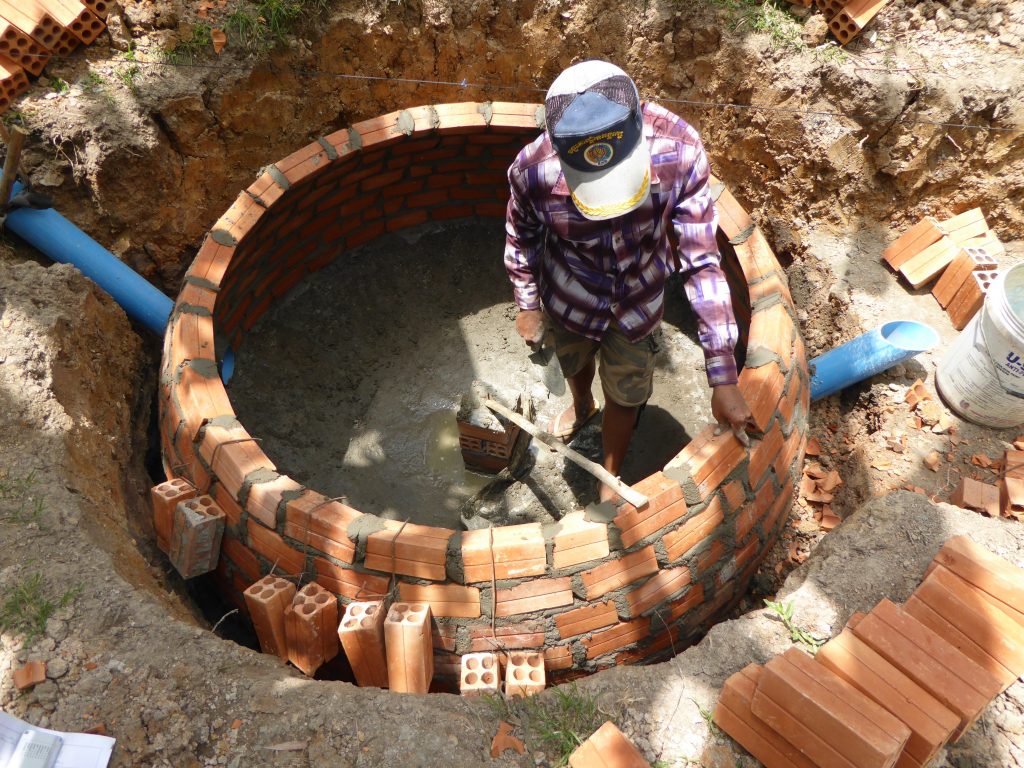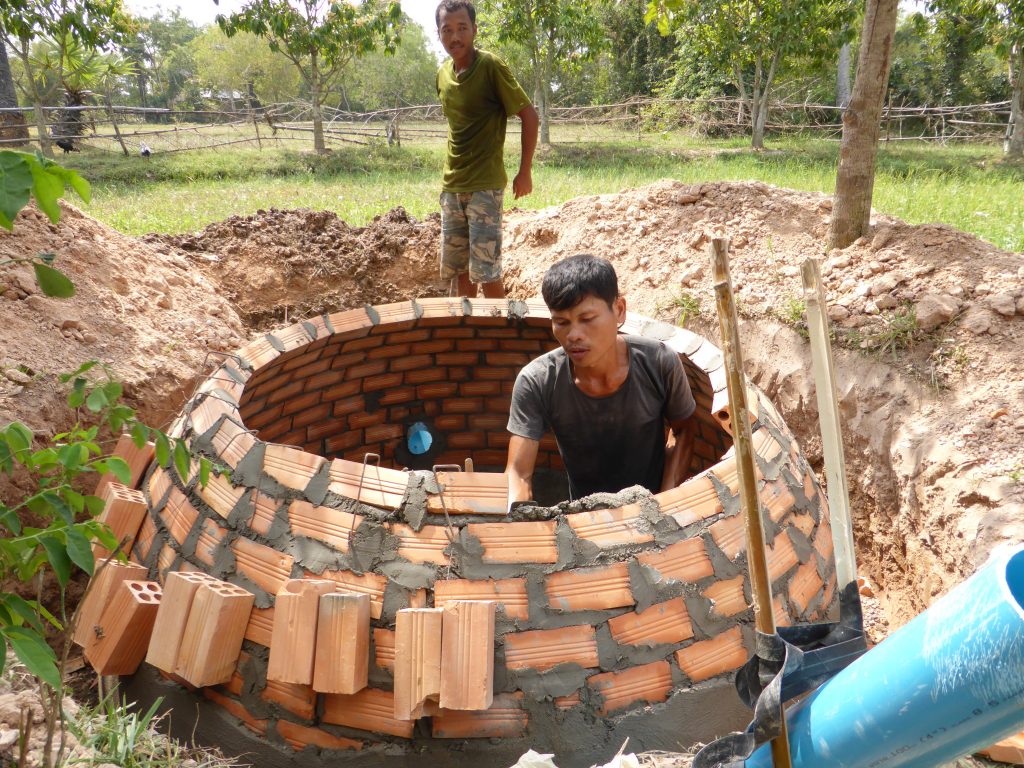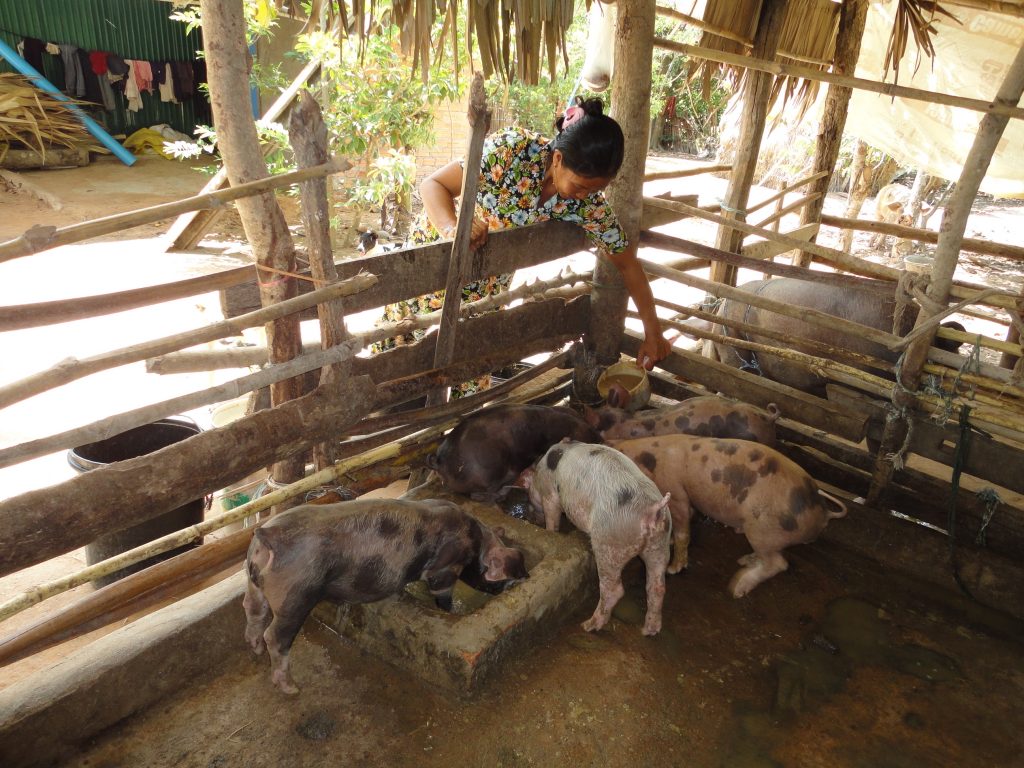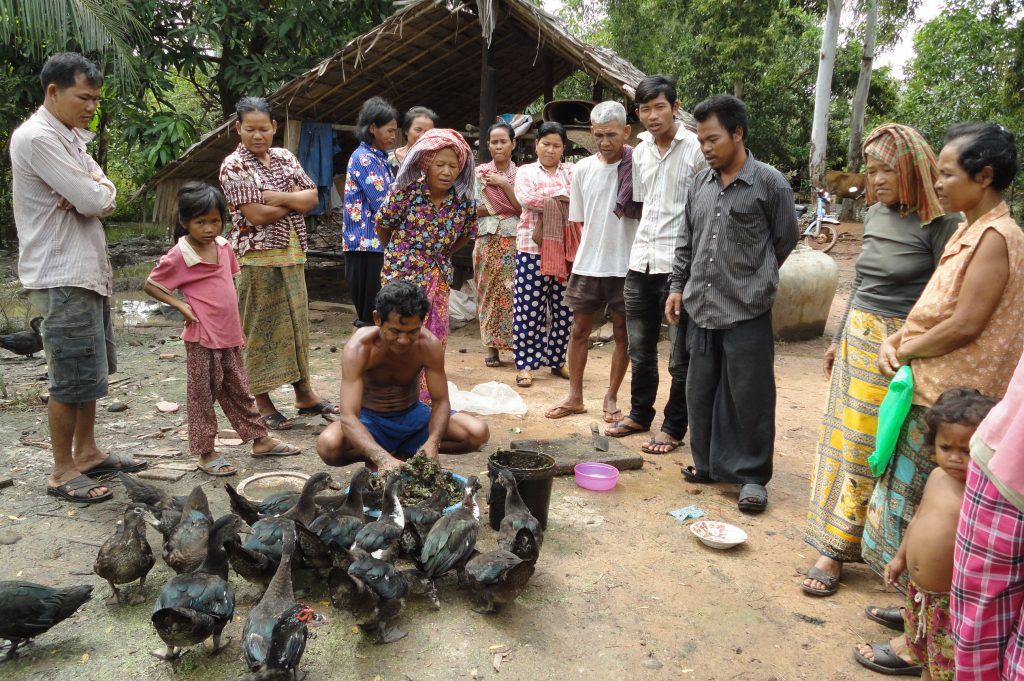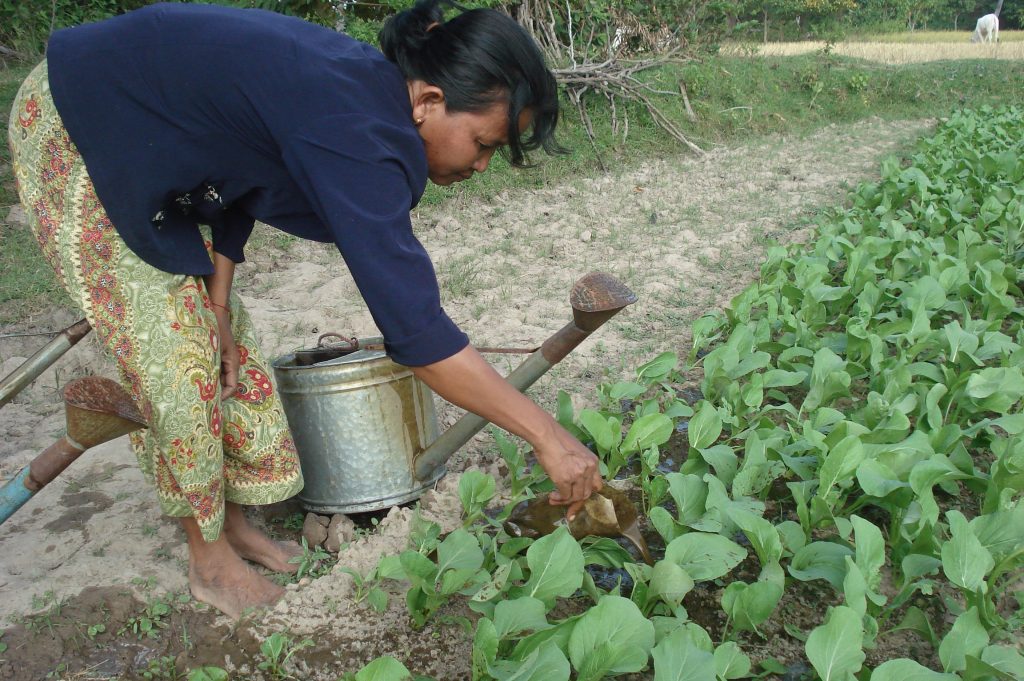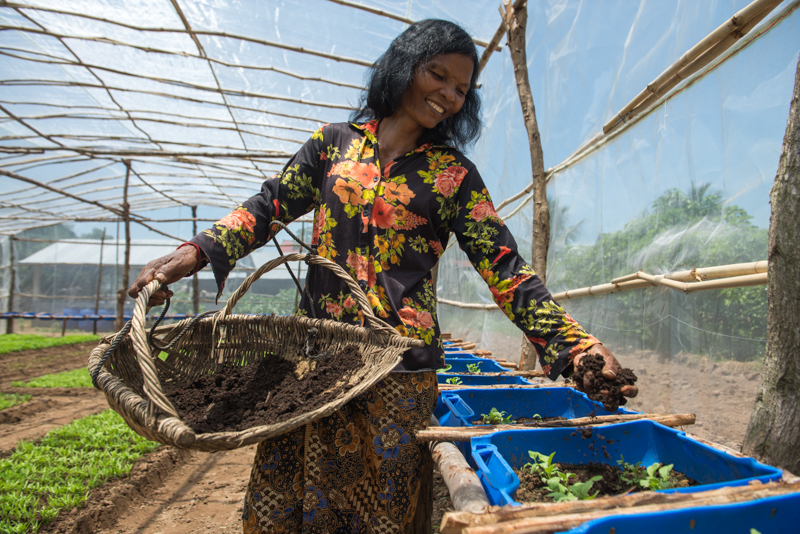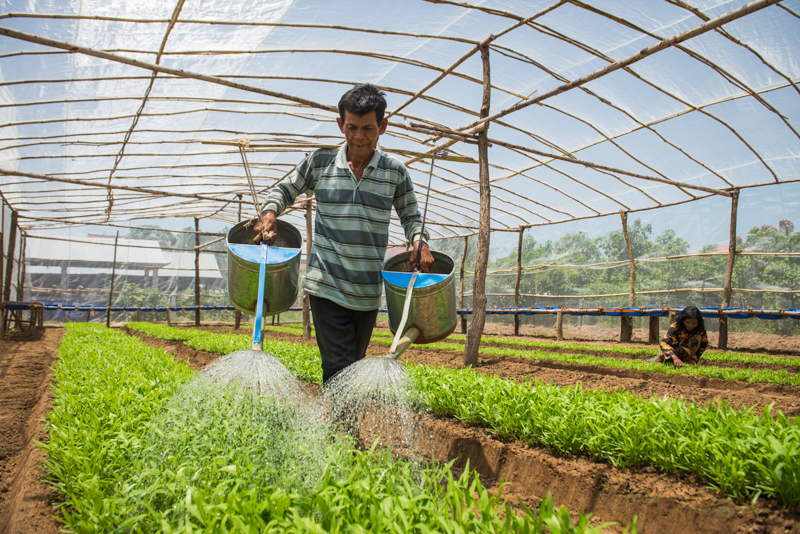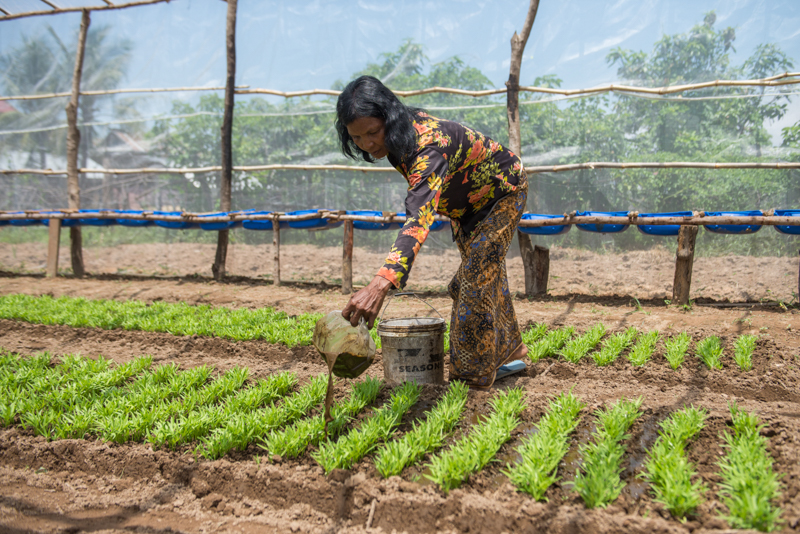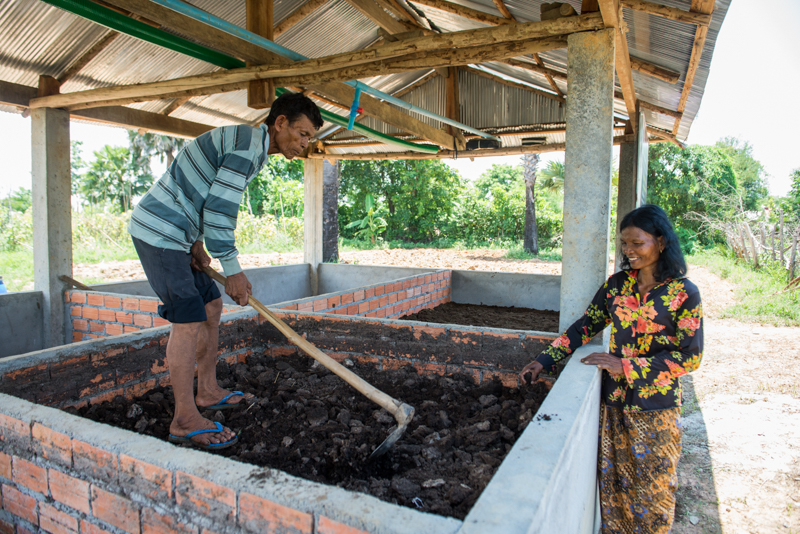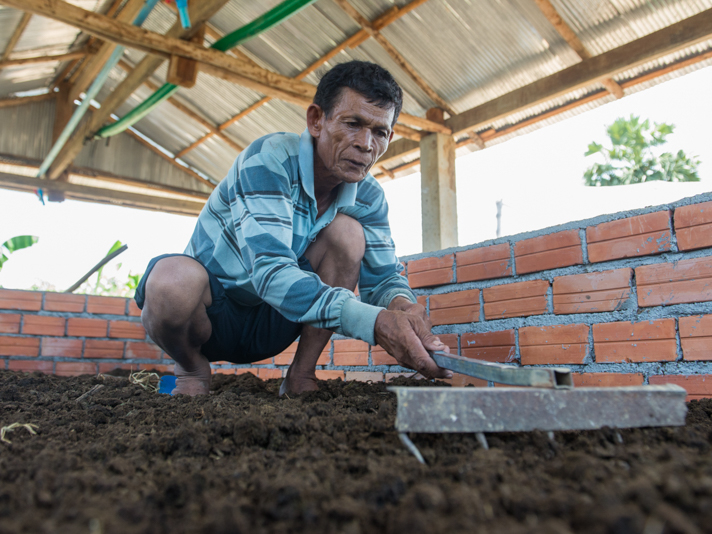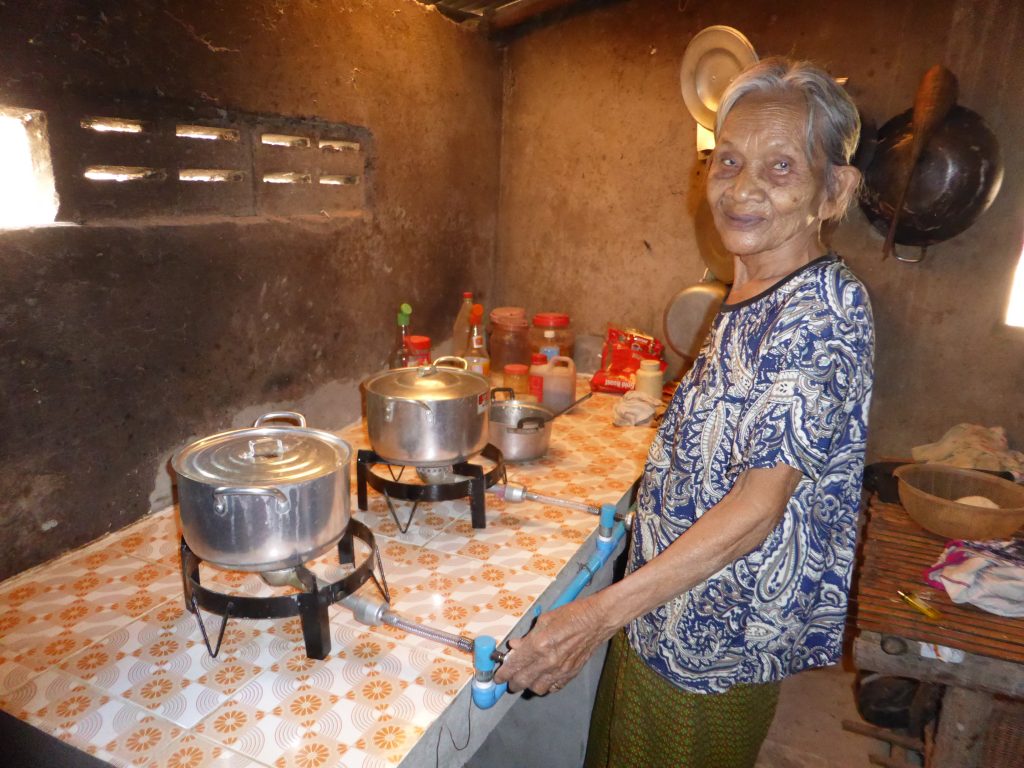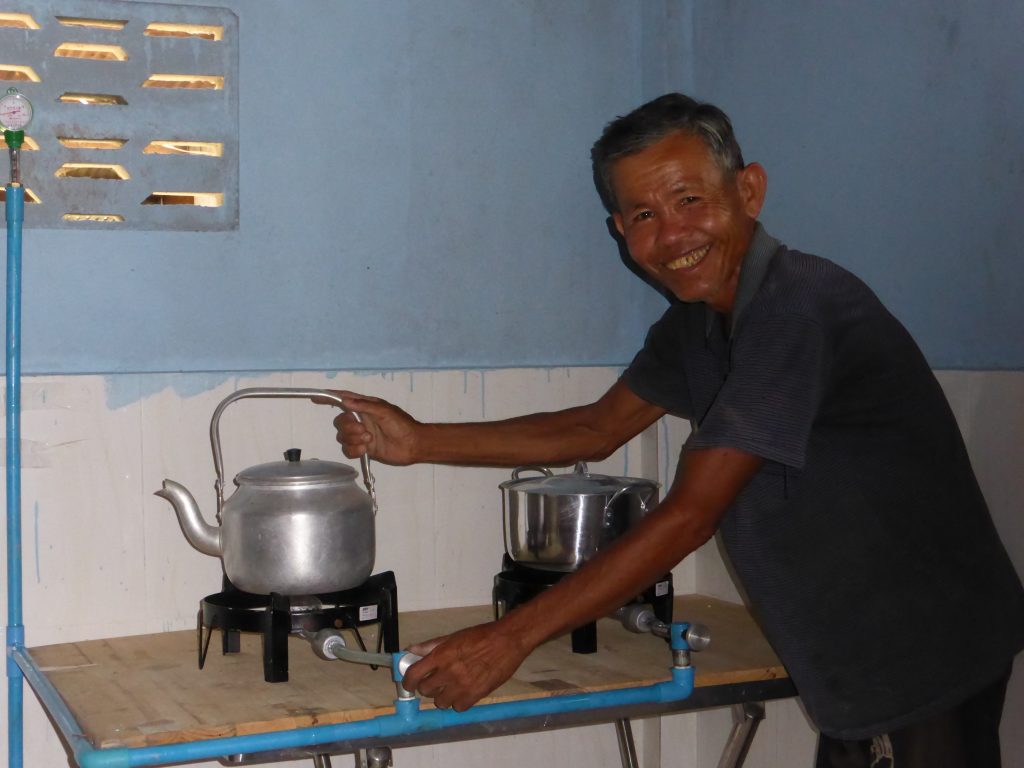Technology
Domestic biogas (fixed dome) generated from animal waste
Project type
Carbon project (GS VER)

Over 85% of the rural population in Cambodia does not have access to electricity (World Bank, 2017) and 80% do not have access to clean cooking (ESMAP, 2017).
The Biodigester Program was designed to address both of these access gaps, whilst also providing local jobs, a reduction of GHG emissions and a number of other benefits for rural household users.
Benefits for users are significant and far-ranging from cost and time savings on acquiring fossil fuels, to reduced impact on forested areas; from health improvements of users no longer exposed to smoke from cooking to reduced need for chemical fertilizers due to the bioslurry made available by the biodigester.
Biogas is a clean energy source produced from livestock and agricultural waste. The program aims to disseminate different types of biodigesters and establish a thriving domestic biodigester sector based on a market-driven approach for sustainable energy in Cambodia. The most widely used model is the fixed dome digester buried under the ground.
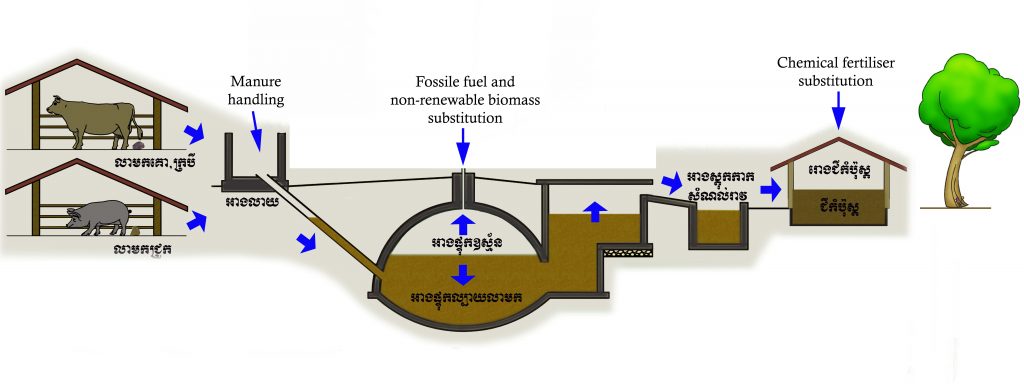
The biodigester converts animal manure into clean biogas and organic fertilizer, providing a way for individual households to reduce their dependence on polluting fuels for cooking and lighting.
This clean energy generates time and money savings for users while reducing deforestation and greenhouse gas emissions. It also creates a smoke-free cooking environment, producing a positive impact on respiratory health, especially for women and children.
The organic fertilizer generated from the system also reduces how much farmers spend on chemical fertilizer while improving crop yield leading to greater produce income.
The program operates in 14 provinces with 27,000+ biodigesters built benefiting more than 150,000+ direct users.


